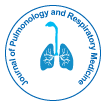开放获取期刊获得更多读者和引用
700 种期刊 和 15,000,000 名读者 每份期刊 获得 25,000 多名读者
抽象的
Respiratory Rehabilitation: A Lifeline for Breathing Health
Dong Wang
Respiratory rehabilitation is a critical intervention that plays a vital role in improving the quality of life for individuals with various respiratory conditions. This abstract provides a concise overview of the significance and benefits of respiratory rehabilitation in promoting breathing health.
Respiratory diseases, such as chronic obstructive pulmonary disease (COPD), asthma, interstitial lung disease, and post-operative conditions, often result in impaired lung function, reduced exercise capacity, and a decreased overall quality of life. Respiratory rehabilitation is a multidisciplinary approach that combines exercise training, patient education, and psychosocial support to address these issues. This comprehensive program empowers patients to regain control over their breathing and enhances their physical and emotional well-being. Key components of respiratory rehabilitation include supervised exercise sessions tailored to the individual's capacity, which help improve muscular strength and endurance. Educational components provide patients with a better understanding of their condition, breathing techniques, medication management, and lifestyle modifications. Furthermore, psychosocial support and counseling are offered to address anxiety, depression, and the emotional challenges associated with respiratory conditions. Respiratory rehabilitation serves as a lifeline for individuals with respiratory conditions, offering a holistic approach to improve their breathing health and overall quality of life. This multidisciplinary intervention, combining exercise, education, and psychosocial support, is a crucial tool in managing and mitigating the impact of respiratory diseases. It not only enhances lung function and physical well-being but also provides the emotional support needed to face the challenges of living with a respiratory condition. It is imperative that healthcare professionals and policymakers recognize the significance of respiratory rehabilitation and make it more accessible to those in need, ensuring a better future for individuals living with respiratory diseases.

 English
English  Spanish
Spanish  Russian
Russian  German
German  French
French  Japanese
Japanese  Portuguese
Portuguese  Hindi
Hindi